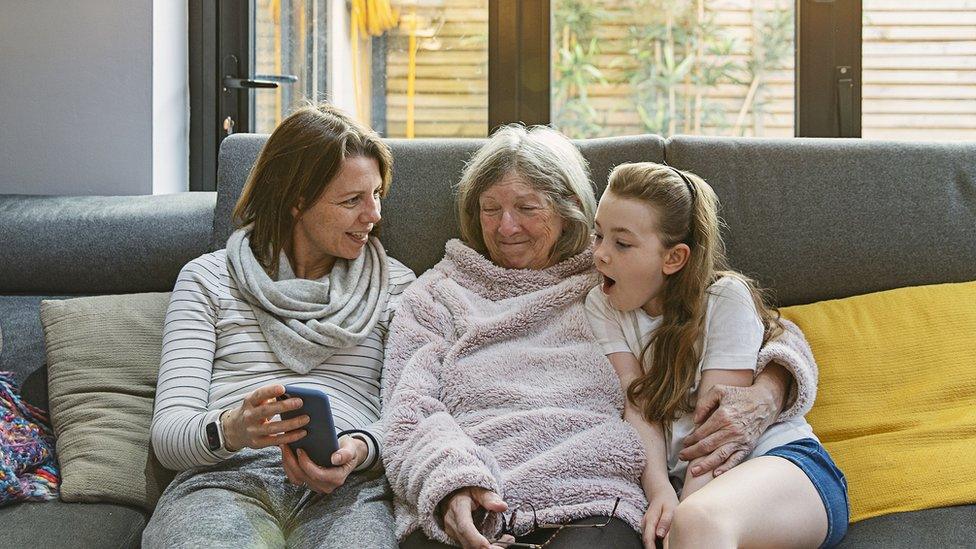ARTICLE AD BOX
 Image source, Getty Images
Image source, Getty Images
By Kevin Peachey
Cost of living correspondent
The Chancellor Rachel Reeves has announced a series of changes to the inheritance tax rules which she said will raise £2bn a year.
Relatively few people actually pay the tax, but many think they will - either owing to its complexity or because they aspire to be suitably wealthy to end up paying.
What is inheritance tax (IHT)?
Inheritance tax is charged at 40% on the property, possessions and money, external of somebody who has died, above a £325,000 threshold.
It is only charged on the part of the estate that lies above the threshold. For example, on an estate worth £335,000, the tax would apply to the additional £10,000.
The chancellor said this threshold will remain in place for an extra two years, until 2030.
Inheritance tax must be paid by the end of the sixth month after the person's death, otherwise interest is charged too.
It currently raises about £7bn a year for the government.
How many people pay inheritance tax?
The latest figures, external show that fewer than one in 20 estates - just over 4% - pay inheritance tax. It means the tax is paid on about 27,800 estates a year.
However, economists at the Institute for Fiscal Studies think tank predict that about 7% of estates could be liable for inheritance tax by 2032, external, under current rules.
Many more people than this believe they could be liable. A YouGov poll for The Times newspaper in July 2023 suggested a third thought inheritance tax would need to be paid on their assets when they died.
What are the current inheritance tax exemptions and allowances and how are these changing?
There are a number of IHT exemptions, as well as allowances for passing on a home to children, or grandchildren.
These include:
Any estate that is valued at less than £325,000 (now fixed until 2030)
Anyone who leaves their estate to a husband, wife or civil partner
Somebody who leaves it to certain charities or community sports clubs
Any land or pasture left in an estate that is used to grow crops or to rear animals
There are additional, significant allowances.
If the person who dies leaves their home to their children or grandchildren the threshold goes up to £500,000.
Image source, Getty Images
Married or civil partners can also transfer assets free of tax between each other, so one partner automatically inherits the other's unused allowance.
So the estate of someone who can use their late partner's allowance, and leaves a home to their children or grandchildren, won't be liable for inheritance tax on anything under £1m.
The chancellor also announced further changes to the way IHT works.
At the moment, inherited pensions are not counted for inheritance tax purposes, but will be included from April 2027.
From April 2026, IHT at 20% will be charged on estates containing business and agricultural assets which are worth more than £1m, external.
She also said shares listed on the AIM stock exchange would be taxed at 20%.
Can money just be given as a gift to children before death?
Anyone can give away up to £3,000 a year, and pay no tax. This is known as the annual exemption. If unused, this allowance can be carried over to the following year, up to a maximum of £6,000.
In addition, if you can show that the gift was funded out of income - as opposed to savings - you will not pay inheritance tax. There are also allowances for wedding gifts.
However, if someone gives a bigger sum, then dies within seven years, then the money may be used as part of inheritance tax calculations.
It is thought changes to a number of exemptions are under consideration for the Budget, including the rules around gifts that are given while you are alive.
What about using a trust?
Some parents set up a trust in favour of their child, which means they technically no longer own the assets, so they are free from inheritance tax.
But there are different types of trust and some complicated rules - here is the government's guide, external - so it is likely to be worth seeking independent advice.
There are lots of guides to inheritance tax from HM Revenue and Customs, external - which also has a helpline, and here on the Moneyhelper website, external.

 6 months ago
30
6 months ago
30








 English (US) ·
English (US) ·